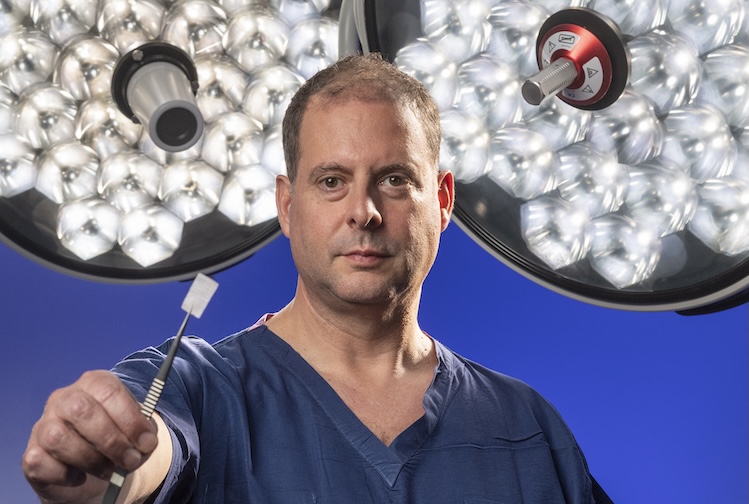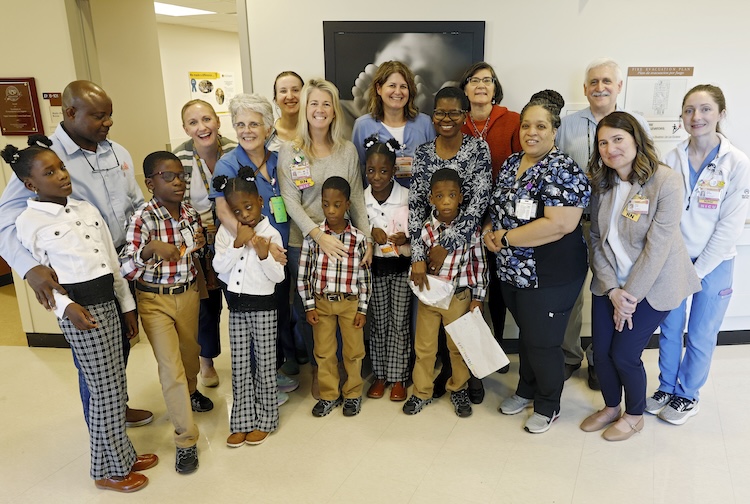Surgeon’s tiny invention is revolutionizing nerve repair surgery
In developing Nerve Tape, VCU Health’s Jonathan Isaacs created a simple, suture-free solution for repairing severed nerves.
September 11, 2025 Jonathan Isaacs, M.D., the chair of VCU Health’s Division of Hand Surgery, invented Nerve Tape. The tapelike material has now been used in more than 2,500 surgeries. (Allen Jones, Enterprise Marketing and Communications)
Jonathan Isaacs, M.D., the chair of VCU Health’s Division of Hand Surgery, invented Nerve Tape. The tapelike material has now been used in more than 2,500 surgeries. (Allen Jones, Enterprise Marketing and Communications)
By VCU Health News staff
What do fishing hooks, jewelry and scotch tape have in common? They all played a part in the development of Nerve Tape. The tiny biologic wrap repairs severed peripheral nerves, a condition that can happen, for example, as a result of a mastectomy or even a bad fall.
Fifteen years ago, Jonathan Isaacs, M.D., chair of VCU Health’s Division of Hand Surgery and a professor in the Virginia Commonwealth University School of Medicine’s Department of Orthopaedic Surgery, set his sights on solving a maddening problem: Even the most skilled surgeons repairing major peripheral nerves could only promise patients a 50-50 chance at full recovery.
“Fifty percent. That’s been the reality for decades,” Isaacs said. “That wasn’t good enough.”
For more than a century, the “gold standard” in nerve repair was suturing, a painstaking process of sewing together minuscule, delicate nerve ends. It was slow, technically demanding, and often resulted in poor alignment, weakening recovery.
Isaacs began with sketching ideas at his kitchen table, searching for a way to improve nerve repair. He wondered if severed nerve ends could be joined without sutures, and he built prototypes with tiny fishing hooks and, later, delicate gold hooks from a fine jewelry designer. With support from VCU, Isaacs was able to work with a medical device partner that ultimately moved his idea to production and operating rooms worldwide. Nerve Tape has now been used in more than 2,500 surgeries across a range of specialties, from breast reconstruction to oral surgery.
In the video below, Isaacs explains how Nerve Tape works and how the support from VCU and VCU Health inspired him to be not just a practicing surgeon but a researcher with the potential to be an uncommon hero, changing the future of surgery.
“It’s humbling,” he said. “If this becomes the new standard, it won’t just improve surgery. It will improve lives.”
(Enterprise Marketing and Communications)
VCU is a place unlike any other. Find out why we are uncommon.




